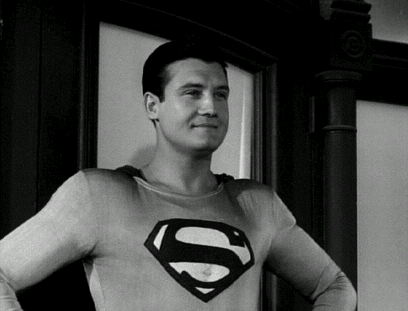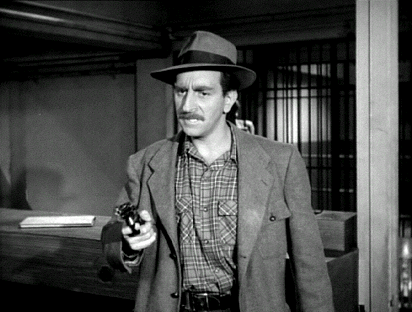Director: Allen Coulter
Writer: Paul Bernbaum
Producer: Glenn Williamson
Cast: Adrien Brody, Ben Affleck, Diane Lane, Robin Tunney, Bob Hoskins, Jeffrey DeMunn, Molly Parker, Lois Smith, Caroline Dhavernas, Joe Spano, Larry Cedar, Kathleen Robertson, Zach Mills, Diego Fuentes, Gareth Williams, Dash Mihok, Ted Atherton, Brad William Henke, Phillip MacKenzie, Kevin Hare, Neil Crone, Seamus Dever, Gareth Williams, Joan Gregson, Richard Fancy, Dendrie Taylor. Jason Spevack, Erin Gooderham, Terry C. Barna, Bill Lake, Brendan Wall, Jeff Cowan, David J. MacNeil, Tim Campbell, Michael Rhoades, Donald Burda, Lorry Ayers, Joseph Adam, Sven Van de Ven, Ayumi Iizuka, Jack Newman, Natalie Krill, Charlie Lea, Gray Powell
On June 16, 1959 in Los Angeles, California, actor George Reeves (Ben Affleck), famous for his television role as Superman, is found dead of a bullet wound to the head in the bedroom of his Benedict Canyon home. Seedy private detective Louis Simo (Adrien Brody) is hired by Reeves’ mother Helen Bessolo (Lois Smith) to investigate her son’s death. Helen does not believe the official suicide verdict. Initially, Simo is just trying to stir up publicity by questioning the validity of the police investigation into Reeves’ death. However, as Simo discovers more about Reeves’ life, he begins to believe that the actor may have been murdered.
The Flashback Fanatic movie review
Nowadays, due to the superhero genre profitably established in the movie mainstream, actors are eager to portray comic book characters. Landing such roles is seen as just another indication of a performer’s versatility and bankability.
Unfortunately, when George Reeves starred as the title character on the Adventures of Superman television series during the 1950s, he felt that he was stuck in a professional rut. Like plenty of other actors playing larger-than-life characters (Bela Lugosi as Dracula, Johnny Weissmuller as Tarzan, Basil Rathbone as Sherlock Holmes, etc.), Reeves was typecast. His success as Superman, at least as far as the movie studios were concerned, caused limitations in his public perception and imposed limitations on his choice of roles. Ironically, 1978’s Superman was the big-budget production that earned the critical and financial success that began to gain respect for comic book superheroes and their actors in films.
The disappointment George Reeves felt about the direction of his acting career provides a possible motive for his suicide. Death by self-inflicted gunshot wound was the official determination given by the LAPD and supported by witness statements and autopsy findings. But real life is usually not as neat and tidy as the conclusion of an Adventures of Superman episode. As is often the case in criminal investigations, there were unexplained details and oversights in the crime scene investigation and autopsy. Some of the relationships George Reeves had and peculiar events in his life raised the possibility of foul play. There were also plenty of Reeves’ friends and his mother who could not believe that George Reeves would kill himself.
Hollywoodland details the final decade of George Reeves’ life and the investigation into his death by the fictional detective character Louis Simo. Reeves’ mother Helen Bessolo actually did seek further inquiries into her son’s death. This film is quite true to the facts of the Reeves case while adding an additional dramatic angle of the Simo character finding parallels between Reeves’ life and his own.
Adrien Brody stars as private investigator Louis Simo. He is fine as the down-on-his-luck hero of the story that has suffered big disappointments in his life. Simo seeks to exploit the Reeves case as a way to generate some headlines that can raise his own professional profile and boost his career. It is only as Simo sees more of his own life’s frustrated ambitions reflected in the life of George Reeves that he develops some sincerity in his search for the truth.
After a two-year lull in his career, Ben Affleck landed the role of George Reeves. This was an opportunity for Affleck to give a performance with more depth than those in his past big-budget spectacles. Affleck really rises to the occasion as he captures Reeves’ charm, humor, and frustration while earning the audience’s sympathy. It is oddly fitting that Affleck, an actor who has played two different superhero roles (in 2003’s Daredevil and multiple appearances as Batman since 2016) and was going through his own career downturn, would portray another actor whose career was stifled by playing a superhero. This award-winning role signaled Affleck’s comeback for quality roles and films.
George Reeves had a longtime romantic relationship with Toni Mannix, the wife of MGM film studio vice president Eddie Mannix who was suspected of ties to the Mafia. This unusual relationship was an open secret and accepted by Eddie. As Toni Mannix, Diane Lane perfectly captures the aging former starlet affecting a certain Hollywood refinement in her speech and manner. There is a passionate desperation in her need for the relationship with the younger Reeves that she wants to be her kept man.
Robin Tunney is funny, insensitive, and a bit pathetic as Leonore Lemmon, the crude, younger woman that prompts George Reeves to end his relationship with Toni Mannix. She has contentious interactions with almost everyone and drives home the sense of hopelessness toward the end of Reeves’ life.
There are many other fine performances to be found in this film. Bob Hoskins as Eddie Mannix, Joe Spano as Eddie’s publicity manager Howard Strickling, Jeffrey DeMunn as Reeves’ agent Art Weissman, Molly Parker as Louis Simo’s ex-wife Laurie, Caroline Dhavernas as Simo’s secretary/girlfriend Kit, and Lois Smith as Reeves’ mother Helen Bessolo all give often understated and genuine performances that always feel just right.
Director Allen Coulter and screenwriter Paul Bernbaum have a unique approach to the frustrating Hollywood mystery of George Reeves’ death. They use the investigation by the fictional detective character of Louis Simo to give the audience facts about the Reeves case that provide multiple scenarios for the actor’s demise. They make Simo more than just a narrative gimmick by having him grow as a character when he gains perspective from the Reeves tragedy.
As a George Reeves fan, I had read quite a bit about his life, his Superman role, and his tragic death. I feel that Hollywoodland makes a sincere attempt to be honest and accurate about the last years of Reeves’ life. It is fun seeing some preparations for Reeves assuming his Superman role and scene recreations typical of the television show. Aside from one memorable bit of Reeves clowning around on the Adventures of Superman set, there is little indication of the fun and joy that those close to Reeves have said was also part of the man’s character. That is hardly a fault of this fine film. Director Coulter has said that he was not striving to just do a biopic about the life of George Reeves. The story uses Reeves’ death as a means of reevaluating one’s life and finding the worth in it.










































